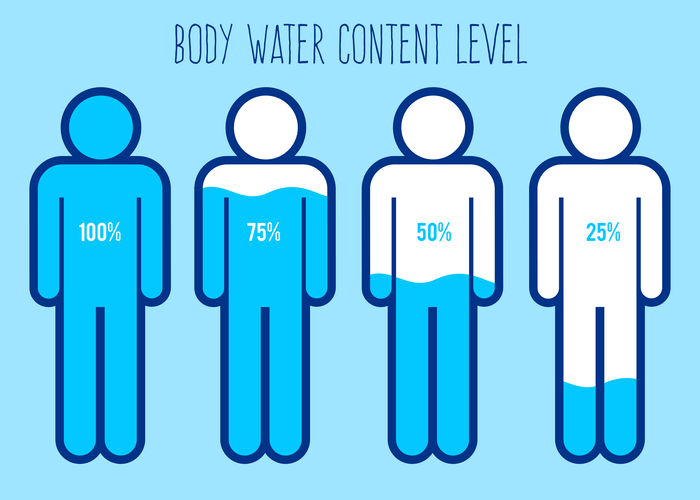These metabolites are what drug tests look for to detect ecstasy or MDMA. The type of drug test being used will determine the amount of time ecstasy can be detected in your body. The half-life concept helps explain why people might feel drained or low after taking party drugs. When MDMA is present, it uses up a large amount of serotonin, which can take time to replenish. This comedown phase can result in sadness, tiredness, or anxiety as the body and brain recover from the intense stimulation caused by MDMA. In heavy or chronic users, it may remain detectable for up to a week.
Can ecstasy cause long-term effects?
Aurelio has been instrumental in developing substance abuse treatment programs directly tailored to help those that also suffer from complex trauma due to their addiction. He has been recognized by several organizations for his forward thinking and ability to tailor treatment to individuals in the most restrictive environments. Getting started with addiction treatment may feel intimidating at first. We understand this and are ready to help you on your road to recovery. We can offer guidance and insight into the recovery process, and will work to provide you with clarity into the steps that lay ahead. Sahil Talwar is a physician assistant with over 7 years of experience in emergency, inpatient and outpatient psychiatry.
How long does ecstasy stay in your blood?
Since there is no way to flush MDMA out of your body to pass a drug test, the best thing to do is get sober. Drug rehab programs can offer the tools and support you need to overcome a substance abuse disorder. Blood tests provide one of the shortest MDMA detection windows, generally identifying the drug for 48 hours. In some cases, and with large doses, it may https://nhacaimaxim88.com/outpatient-vs-inpatient-rehabilitation-what-s-best/ be detectable for 72 hours.
Euphoria and Energy Boost
At Luxe Recovery, our team has the right experience and qualifications to ensure you receive the proper addiction treatment. We carefully craft each treatment plan so that it’s suited to your needs and situation. Typically, you will begin to feel the effects of ecstasy within 20 minutes to an hour of taking it.
- However, its effects on the brain’s chemistry can lead to serious mental and physical health risks when abused, including addiction, anxiety, and depression.
- How long MDMA stays in your body depends on a variety of factors, including the dose you take and how frequently you consume it.
- A hair test can detect MDMA and other drugs in the system for up to 90 days (three months) after the last dose.
The most obvious reason a person could be tested is what is Oxford House that a law enforcement agent suspects usage based on their behavior. In addition, it is common for drug rehabilitation facilities to administer an advanced drug test battery to determine whether MDMA has been ingested. As a result of differences in potency and/or modified forms of MDMA, the duration over which the drug stays in your system may be influenced by the sourcing. On the other hand, if the MDMA is laced with a substance that expedites its metabolism, it may be cleared quicker than you expect.

Individuals with impaired liver or kidney function may process the drug more slowly, leading to longer detection times. She has been a counselor on the women’s team at Alina Lodge since 2014. Thérèse received her Master’s degree in Counseling from Montclair State University in 2013 and holds a post-Master’s certificate in Advanced Counseling from Montclair State University. Thérèse is both a Licensed Professional Counselor (LPC) and a Licensed Clinical Alcohol and Drug Counselor (LCADC) with the state of New Jersey.

Family Programs
- MDMA can also have severe and potentially life-threatening side effects, especially at higher doses or when combined with other substances.
- Having worked in numerous capacities at different treatment centers, Matt brings a unique skillset that helps our organization grow in new ways.
- For instance, staying hydrated might help eliminate traces faster, while dehydration could extend detection windows.
As hair grows, traces of MDMA become embedded in the hair shaft where they remain until the hair is cut or falls out. Ecstasy, also called “molly” or “MDMA,” tends to be most popular among adolescents and young adults. Here in Arizona, 43,000 or 7.58% of 12-to-17-year-olds report using substances in the last month, including ecstasy. While ecstasy has the illusion of being “safer” than other substances, this is far from reality.
- Bob has been actively involved in community organizations throughout his career.
- Carol also has received certification as a New Jersey Disaster Response Crisis Counselor (NJ-DRCC).
- The length of time that ecstasy stays in urine can be affected by a person’s health, metabolism, age, body mass and water intake.
- Treatment centers provide medical supervision to manage these symptoms.
- Some tests can detect Molly for only a day or two after a person has taken the drug.
What Types Of Drug Tests Are Used To Detect MDMA?
The drug can remain detectable in urine for 2 to 4 days after use, although this timeframe can extend for chronic or heavy users. Ecstasy is detectable in blood for approximately 12 to 24 hours after ingestion. Blood tests are typically used in situations requiring immediate detection, such as emergency medical scenarios or roadside testing. At Enhance Health Group, located in beautiful Orange County, we specialize in providing evidence-based support and resources for those dealing with substance use. Understanding the effects of drugs like ecstasy is critical for making informed choices, whether for personal health or supporting a loved one.
Over time, the drug is transported to the liver, where it’s broken down. Taking multiple doses over a period of several hours can lengthen the detection window. Understanding ecstasy’s effects is crucial for informed decision-making and health preservation. Knowing how long ecstasy lasts in the body, its potential risks, and long-term impacts can help individuals avoid how long does ecstasy stay in your system harmful consequences. At Enhance Health Group in Orange County, we provide education and support for those dealing with substance use and its effects, empowering individuals to make healthier choices. Urine tests are among the most common methods for detecting ecstasy.
Our Ecstasy Detox Center
He graduated from South College with his Master’s in Physician Assistant studies in 2015. Sahil has utilized his experience by treating patients in both civilian and military settings. He is a Captain in the Army Reserves and has 15 years of military service. His focus is on helping people who suffer from multiple issues, such as schizophrenia, mood disorders, substance abuse, PTSD, anxiety, depression, OCD, and ADHD.

